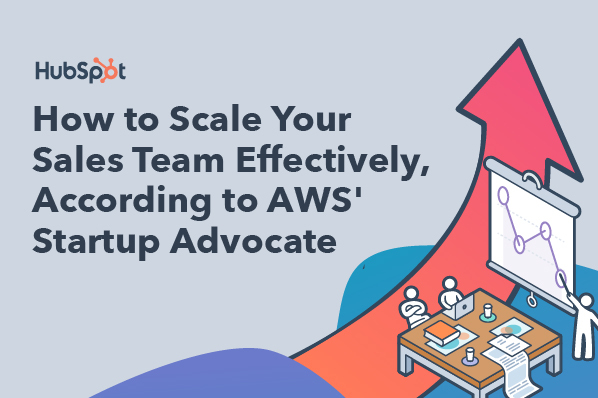Dan Tyre has gotten upset with me exactly one time over the course of our three-plus-year-long working relationship. It was around Christmas time — he and I were on a Zoom call with some other writers for the HubSpot Blog, discussing our holiday plans.

Dan told us that he had recently purchased 500 hams to distribute across the greater Phoenix, Arizona area on Christmas day — which was only five days away. Naturally, I asked Dan how he intended to get 500 hams to the ham-deprived population of Phoenix in such a tight window.
And five days away from his ham-distribution deadline, Dan said he didn't have a plan yet. So I told him, “Dan, I don't think distributing 500 hams is something you should wing.”
Everybody laughed — except for Dan.
Looking as serious as I had ever seen him, he said, “Oh yeah, Jay?”
Like I said, that‘s the only time I’ve ever seen him upset — because that‘s the only time I implied he couldn’t do something that he set his mind to. And suspended in that moment, seeing that look on his face, I came to realize that Dan was going to distribute the hell out of those hams.
And he did. And I never doubted him again — on matters both ham- and non-ham-related.
Dan‘s drive is palpable. He has a certain "pedal-to-the-floor-ness" about him that you get a sense of within seconds of meeting him. And it was that motivation — paired with his empathy, intelligence, and creativity — that allowed him to play an instrumental role in building HubSpot’s sales department from the ground up as the company's first sales director and sixth employee.
But wild as this might sound, Dan actually didn't start his career in sales at HubSpot in 2007 — and I was lucky enough to have the chance to talk with him about the last 45-or-so years that he spent as a sales professional and what he has learned over that stretch.
From “The Worst Company in the History of American Business” to a “Hyper-Growth Addiction”
After college, Dan formally began his sales career at a company called The Computer Store: an organization he affectionately refers to as “the worst-run company in the history of American business” — citing inventory issues, nepotism, and the fact that it fumbled the exclusive right to sell Apple computers east of the Mississippi as his main gripes.
But The Computer Store connected him with his then-boss, Roger, who would ultimately bring him on board his first startup — a company at the center of the PC revolution called Businessland.
During his tenure at Businessland, Dan advanced into sales management, covered various territories, got his first experience with sales training, and ultimately helped grow the company from $2 million in sales to $1.4 billion in just nine years.
He claims his experience at Businessland got him “addicted to hyper-growth” and shaped his career trajectory. When I asked him what the key lessons he pulled from his time there were, these are what he referenced:
- Use hustle as a competitive advantage. Even when you don‘t have the best idea of what you’re doing, be willing to grind, fail forward, and keep your feet moving. He also stressed the value of the “extra calls, connections, and relationships you make” in the context of growth and career development.
- Capture the hearts and minds of your team as a manager. Trust is pivotal in building and guiding a successful, growth-oriented team — don't skimp on human connection and alignment when it comes to the people you manage.
“Really Becoming an Entrepreneur”
Dan says he “really became an entrepreneur” after Businessland. He started his own company, Automated Labor Incorporated (ALI). But the awful name (his words, not mine) didn't reflect the quality of the company itself.
The business experienced hyper-growth and near-immediate success, but even so, Dan cites his time as Founder and CEO there as one of the first times he experienced imposter syndrome. He was covering a lot of new responsibilities and wearing hats he'd never worn. His tenure there taught him two main lessons:
- Always be aligned with your manager. He advised any sales professionals who don't feel aligned with their managers to be frank and ask them, “Are we aligned?” in their next one-on-one.
- If you need help, ask. Dan says he never would have been successful at ALI if he never “tapped into the brain trust of great people he worked with.” In this case, it was ALI's board of directors.
HubSpot‘s Pre-Dan Era/Dan’s Pre-HubSpot Era
In 1997, ALI merged with a company called Info Image. And over the next ten years, Dan had stints there, at Groove Networks (where he worked under future HubSpot CEO Brian Halligan), Microsoft, and others.
In 2006, Dan received a call from Brian Halligan asking him to be employee number four at his new company, HubSpot. Dan politely declined, citing concerns with the company's initial business model. Six months later, Brian called again to inform him that HubSpot had pivoted. Now, it offered businesses an alternative to paying Google for leads.
Dan still didn’t take the job but did become HubSpot‘s third-ever customer (after CTO Dharmesh Shah’s wife and a Massachusetts biotech company). And in 2007, Brian finally convinced him to come on board as HubSpot's first sales director and sixth employee.
Employee Number Six
Initially, Dan worked most closely with HubSpot‘s first VP of Sales, Mark Roberge — who Dan gives "95% of the credit" for scaling HubSpot’s sales from zero to $100 million.
Dan worked as HubSpot‘s self-proclaimed "first BDR" and initial "salesforce." The company went its first 27 months over quota — a practically unheard-of figure that allowed for access to capital, room to experiment, and the ability to scale. And that success was, in large part, a byproduct of Dan’s “hustle as a competitive edge.”
But his unique place in HubSpot‘s growth posed a series of equally unique challenges for Dan. Early on, he was tasked with owning sales to what could be described as HubSpot’s secondary persona, known as “Owner Ollie.” He didn't have access to the resources allocated to the other key persona “Marketing Mary.”
At one point, he sold HubSpot software to Geico — a multibillion-dollar Berkshire Hathaway subsidiary — for $250, telling his contact at the company to put the charge on his credit card. Still, Dan was able to thrive and play a pivotal role in scaling the HubSpot sales org into what it is today.
When I asked him what he learned during his career at HubSpot, he referenced these key lessons:
- Sales management should always maintain a written plan. Always break down goals by revenue, new customers, and retention. According to Dan, “If the goals aren't written, they're not really goals because it's too easy to change your mind. It's too easy to dismiss it. It's too easy to say I didn't want it.”
- Be the best in a specific niche when scaling. He says, “As long as there are 200 people in that niche in your first year or so, it's unlikely you're going to need more … And by being that focused gives you an opportunity to really study that market, understand the vocabulary and the pace and the seasonality of that market, and become known in that market.”
- Once again, sales leaders need to capture the hearts and minds of their teams. By his account, “I have worked with dozens of sales leaders, and some of them get so pumped up about having to hit their number that they forget that we're dealing with human beings and that selling in 2023 is hard.”
Dan's LinkedIn tagline is “trying to do more good for the universe.” He lives up to that philosophy — and that manifests itself in a range of ways. He prioritizes connection and compassion and makes a point of elevating those around him.
And everyone from the sales pros he's managed to 500 people in the greater Phoenix area who got a free Christmas ham can vouch for that.










